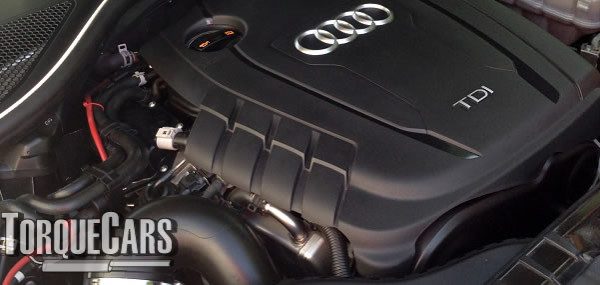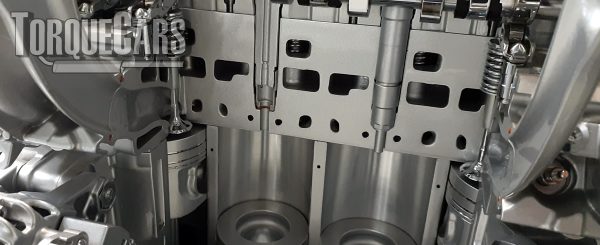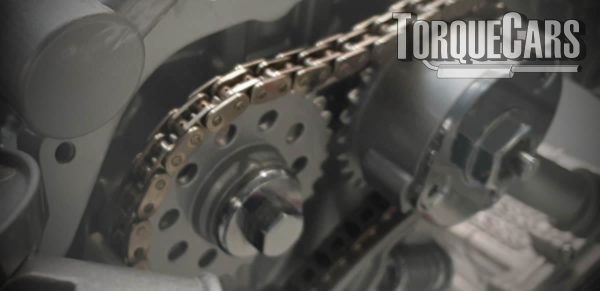Guide to 3.0 TDI EA897 Problems & Faults
Common Problems & Weak Spots Of The VW 3.0 TDi Engines
Although the EA897 VW 3.0 TDi is typically regarded as a reliable engine, it can occasionally have problems.
Thankfully most of these problems are easy to spot early on and you have an opportunity to resolve the issue before it gets too serious.
Check out our 3.0 TDi problems video for a quick overview of this topic.
The following are some typical issues and weak spots of this engine that have been reported by vehicle owners:

High-Pressure Fuel Pump Failure
Premature failure of the high-pressure fuel pump can occasionally result in problems with the fuel system and even potential engine damage.
The high-pressure fuel pump in a VW Group diesel engine, known as a CR or common rail diesel engine, is responsible for supplying fuel to the fuel injectors at high pressure. Here's how it works:

- Fuel Supply: The high-pressure fuel pump draws fuel from the fuel tank and delivers it to the common rail—a reservoir that holds pressurized fuel.
- Fuel Compression: The pump pressurizes the fuel to extremely high pressures (up to 30,000 psi or more). This high pressure allows for better atomization of the fuel, which results in efficient combustion.
- Fuel Injection: The high-pressure fuel is then distributed to the individual fuel injectors through the common rail. The injectors spray precise amounts of fuel directly into the engine cylinders at the appropriate time for combustion.
When the high-pressure fuel pump fails or malfunctions, it can lead to several problems and symptoms:
- Loss of Power: A failing high-pressure fuel pump may result in a noticeable loss of engine power, especially during acceleration or when driving uphill.
- Rough Idle or Stalling: The engine may experience rough idling or even stalling when the pump is not delivering an adequate amount of fuel under high pressure. This can cause the engine to run unevenly or shut off completely.
- Hard Starting: A faulty pump may make it difficult to start the engine, requiring more cranking or multiple attempts to get it running.
- Engine Misfires: Insufficient fuel pressure can lead to incomplete combustion in the cylinders, causing engine misfires. This may result in rough running, vibrations, or a "check engine" light.
- Fuel System Fault Codes: A malfunctioning high-pressure fuel pump can trigger diagnostic trouble codes (DTCs) in the engine control unit (ECU). These codes can be retrieved using diagnostic tools, helping to identify the specific issue.
If you suspect a problem with the high-pressure fuel pump in your VW Group diesel engine, it's recommended to have it inspected and diagnosed by a qualified mechanic or dealership.
They will be able to perform the necessary tests and determine if the pump needs repair or replacement. This approach is much better than a trial, see if the new part fixes the problem approach.
Fuel Injector Failure
When injectors fail they can lead to power losses at certain RPM points, loss of power or starting issues.
Often injector problems are hard to locate because the causes and sources of the problem are many and varied.
This can be due to several reasons which are:
Carbon Build-up
The fuel injector can become clogged by any type of deposit because it is essentially made to deliver fuel to the location where it is needed.
Fuel circulation becomes challenging once the carbon deposit gets in the way. So, if fuel cannot move freely, the injector gets damaged.
Broken Or Dry Rubber Seals
The fuel injector may not function properly if the rubber seals, which are supposed to be wet, are damaged or dry.
Internal Cracks In The Injectors
A fuel injector that has an external or internal crack faces great danger as fuel can leak through these cracks and this can stop the fuel from reaching engine components.
Glow Plugs
The VW 3.0 TDi engines have glow plug issues, just like other diesel engines, which can make it challenging to start the car in cold weather when they start to fail.
Glow plugs are heating devices used in diesel engines, including those found in VW Group vehicles, to aid in cold starting. Here's an explanation of the role of glow plugs and potential problems when they fail:
- Cold Starting Assistance: Diesel engines rely on compression ignition, meaning the fuel-air mixture is ignited by the heat generated during compression.
In cold conditions, the heat generated during compression may be insufficient to ignite the fuel, making starting difficult.
Glow plugs provide additional heat to raise the temperature in the combustion chamber during cold starts, helping the engine start more easily. - Heating Element Design: Glow plugs consist of a heating element typically made of a high-resistance material, such as a ceramic or metal sheath with a heating coil inside.
When electricity flows through the heating element, it generates heat, which is transferred to the combustion chamber.
If glow plugs fail or malfunction, the following problems and symptoms may occur:
- Hard Starting in Cold Conditions: A faulty glow plug or glow plug system can make it challenging to start the engine, particularly in cold weather. The engine may require extended cranking or multiple attempts before it starts.
- Rough Idle or Misfires: When one or more glow plugs are not functioning correctly, the engine may experience a rough idle or misfires during the warm-up phase.
This is because inadequate heat in the combustion chamber can lead to incomplete combustion. - Increased Smoke: Faulty glow plugs can cause excessive smoke from the exhaust, especially during cold starts. The unburned fuel may produce black or gray smoke.
- Illuminated Glow Plug Indicator: Many vehicles have a glow plug indicator light on the dashboard that illuminates when the glow plugs are activated during the pre-heating phase.
If the indicator light remains illuminated or flashes when the engine is running, it can indicate a problem with one or more glow plugs.
Use diagnostic tools to check the functioning of each glow plug and replace any faulty ones as needed. Properly functioning glow plugs are essential for reliable cold starting and smooth engine operation, particularly in colder climates.
Diesel Particulate Filter (DPF)
The DPF on the EA897 engine helps lower emissions, but it occasionally gets clogged or fails, affecting engine performance and necessitating costly repairs.
A warning light on the dashboard that fails to go out, or one that keeps coming up regularly are indicators of an early DPF problem.

The DPF (Diesel Particulate Filter) is an emission control device used in most if not all modern diesel engines, including those in VW Group vehicles.
Early lower power diesel engines did not have these but the VW group fitted them on the higher power versions to meet emissions regs.
Early designs located the DPF away from the engine heat down the exhaust which causes a higher risk of clogging especially for drivers who only do short journeys.
Its primary function is to capture and trap soot particles from the engine's exhaust gases. Here's how it operates and what problems may occur when it fails:
- Soot Particle Filtration: The DPF is located in the exhaust system and contains a ceramic or metal filter that traps and collects microscopic soot particles produced during diesel combustion.
It operates by forcing exhaust gases through tiny channels in the filter while capturing the soot particles on the porous walls. - Regeneration Process: Over time, the accumulated soot particles can clog the DPF, leading to increased exhaust backpressure and reduced engine performance. To prevent this, the DPF goes through a process called regeneration. There are two types:
- Passive Regeneration: This occurs when the exhaust gases naturally reach a high enough temperature (usually during prolonged highway driving) to burn off the trapped soot particles.
- Active Regeneration: If the exhaust gases do not reach the required temperature for passive regeneration, the engine control unit initiates active regeneration.
It injects extra fuel into the engine or uses an oxidation catalyst to raise the temperature of the exhaust gases and burn off the trapped soot. The engine will run significantly hotter during this cycle.
When the DPF fails or malfunctions, the following problems and symptoms may arise:
- Reduced Engine Performance: A clogged or failing DPF can cause a noticeable decrease in engine power and acceleration due to increased exhaust backpressure.
- Frequent Regeneration Cycles: If the DPF is unable to regenerate properly, the vehicle may initiate more frequent regeneration cycles, which can be indicated by excessive fuel consumption, increased exhaust heat, or a distinct smell of burning.
- Warning Lights and Error Codes: A malfunctioning DPF can trigger the "check engine" light or the specific DPF warning light on the dashboard.
Additionally, the engine control unit may log diagnostic trouble codes related to the DPF system, such as "DPF filter efficiency below threshold" or "DPF regeneration failure." - Exhaust Smoke or Smell: A failing DPF can cause excessive smoke from the exhaust, often appearing as dark or black smoke.
There may also be a noticeable smell of unburned fuel or sulphur. - Engine Stall or Start Issues: In severe cases where the DPF is heavily clogged, it can cause engine stalling or difficulties in starting the engine.
If you suspect a problem with the DPF in your VW Group diesel engine, it's essential to diagnose the issue and cause, then go on to perform necessary cleaning or regeneration procedures, or recommend DPF replacement if required.
Timing Chain Tensioner
Your engine's timing may be off if either of the two tensioners malfunctions, which could result in pistons colliding with valves in the worst case, or an annoying rattle or vibration in the best case.
As with all metal parts under stress the chains themselves are subject to stretching but this can get worse and accelerate when the tensioner fails due to the extra vibration encountered.
To ensure less likelihood of engine damage if you have an earlier 3.0, we would recommend changing the entire set, chains, and tensioners.
It is a false economy in my view just to replace the chain.

The timing chain tensioner is a crucial component in the engine's timing system, responsible for maintaining proper tension in the timing chain. In VW Group engines, timing chains are commonly used instead of timing belts.
Interestingly on some VAG group diesel engines the chains were replaced with a gear driven mechanism!
Here's an overview of the timing chain tensioner's role and potential problems when it fails:
- Timing Chain Tension: The timing chain connects the engine's crankshaft and camshaft(s), ensuring precise synchronization of their movements.
The tensioner keeps the chain under proper tension, ensuring accurate timing and preventing chain slack or skipping. - Hydraulic Tensioner Design: Many modern VW Group engines use a hydraulic timing chain tensioner. It consists of a hydraulic piston, a spring, and an oil-filled chamber.
The tensioner's internal mechanism applies hydraulic pressure to keep the timing chain tight.
When the timing chain tensioner fails or malfunctions, several problems and symptoms can occur:
- Chain Noise: A failing tensioner may result in rattling or clattering noises coming from the engine compartment.
These noises are more prominent during startup or when the engine is under load. They can indicate a loose or improperly tensioned timing chain. - Chain Slack or Skipping: Insufficient tension from a faulty tensioner can cause the timing chain to become slack or even skip teeth on the sprockets.
This can lead to erratic engine operation, misfires, or loss of power. - Engine Misalignment: If the timing chain tensioner fails completely, the timing chain may lose tension entirely.
This can cause the engine's timing to become misaligned, potentially resulting in severe engine damage. - Check Engine Light: In some cases, a faulty timing chain tensioner can trigger the "check engine" light or other warning indicators on the dashboard.
This occurs when the engine's camshaft position sensors detect timing discrepancies. - Engine Stalling or Failure to Start: In extreme cases, where the timing chain has skipped teeth or the engine's timing is severely off, the engine may stall, or it may refuse to start altogether.
If you suspect a problem fully inspect the timing chain system, to check for excessive play or vibrations which will help isolate the location of the problem and replace the tensioner if necessary.
Timely attention to timing chain tensioner issues can prevent more significant engine damage and ensure reliable engine performance.
Please let us know in the comments below if you have any problems we have not covered in this article, I would love to make this article as comprehensive as possible and can only do so with the feedback of our readers and viewers.
Please Check out my YouTube channel, we're regularly adding new content...
PLEASE HELP: I NEED YOUR DONATIONS TO COVER THE COSTS OF RUNNING THIS SITE AND KEEP IT RUNNING. I do not charge you to access this website and it saves most TorqueCars readers $100's each year - but we are NON PROFIT and not even covering our costs. To keep us running PLEASE Donate here
If you liked this page please share it with your friends, drop a link to it in your favourite forum or use the bookmarking options to save it to your social media profile.
Feedback - What do You Think?
Please use our forums if you wish to ask a tuning question, and please note we do not sell parts or services, we are just an online magazine.
Help us improve, leave a suggestion or tip
Please watch this video and subscribe to my YouTube channel.

 Click to accept YouTube Cookies & Play.
Click to accept YouTube Cookies & Play.